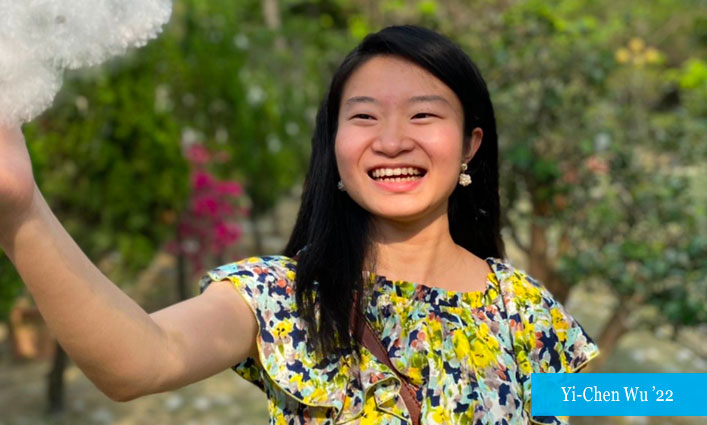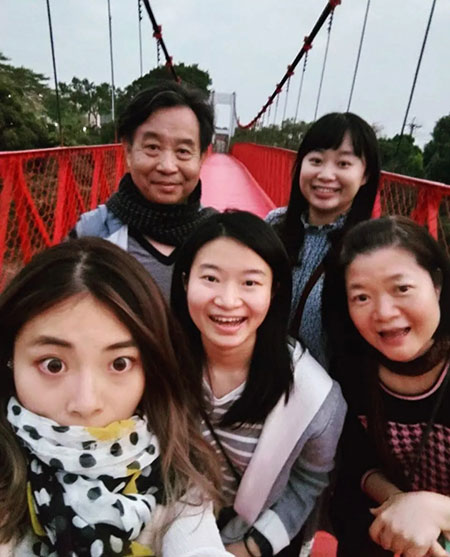
When Yi-Chen Wu ’22 was 15 years old, she came to the United States from Taiwan to attend high school. Sitting in her classes, she felt alienated because of the language barrier and culture shock. “To enhance my language proficiency and blend in with local customs,” Wu says, “I participated in various volunteering projects.” She volunteered at homeless shelters, the Special Olympics, community gardens, animal adoption agencies, and senior care centers, and started to find her footing.
“During my spare time, I often sat in on trials. I was intrigued by both the criminal justice system and psychology,” says the forensic psychology major. “When I discovered that John Jay College of Criminal Justice offered the best forensic psychology program in the world, I knew I wanted to come here. The world’s foremost forensic scientist, Dr. Henry Lee, is an alumnus of John Jay; and the pioneer of false confession research, Dr. Saul Kassin, teaches at John Jay.”
“When I discovered that John Jay College of Criminal Justice offered the best forensic psychology program in the world, I knew I wanted to come here.” —Yi-Chen Wu ’22
What were some of your biggest challenges when you first came to John Jay?
Due to neurological damage resulting from major brain surgery, both of my hands tremble involuntarily. Even the simplest things I have to do multiple times and with lots of patience. It is a challenge typing on a keyboard while both hands are trembling. I write very slowly and my handwriting can be illegible. Luckily, before starting my first semester at John Jay, I applied to the Early Start Program. That program was extremely helpful because I got to build up my networks, meet one of my best friends, and find the right resources for me. One of those resources was the Office of Accessibility Services. The staff there strives to meet the necessary accommodations that students need and provides a warm and supportive environment.
“The most important lesson that I learned from being a research assistant is that you don’t have to step out of your comfort zone, you just have to expand it.” —Yi-Chen Wu
Was there a John Jay experience that was pivotal for you?
When my social psychology professor, Dr. Stephanie Cardenas, offered me a position to be her research assistant, I was excited but also terrified. I was on the verge of emailing Dr. Cardenas to tell her that I wasn’t competent enough to serve my position, but right before I hit the send button, she assigned me an urgent but doable task. I reached out to the other research assistants and asked about the items that I didn’t understand. They were very generous and patient with me. I was able to pull myself together and complete more simple tasks; then I was able to run experiments and perform coding tasks. The most important lesson that I learned from being a research assistant is that you don’t have to step out of your comfort zone, you just have to expand it. I cannot thank Dr. Cardenas and my fellow research assistants enough for providing me with such a meaningful opportunity.

“Each member of my family is an irreplaceable figure in my life and the source of my happiness.” —Yi-Chen Wu
Is there someone special who’s particularly proud of your accomplishments?
My entire family. My father’s words have always been reassuring and his love is like a mountain. My mother and sisters devoted a great deal of time listening to my research papers, giving me amazing ideas, and taking me on trips when I was feeling down. Each member of my family is an irreplaceable figure in my life and the source of my happiness. They have empowered and motivated me to seize every possibility. I’m a better person when I’m with them.



